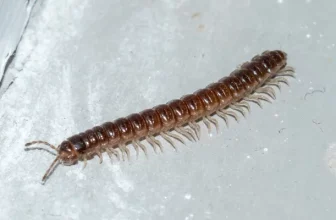
Spot the Early Signs of a Rodent Problem
Why It Matters:
Catching a rodent issue early makes control much easier and cheaper. Ignore the signs, and you risk a full-blown rodent infestation.
What to Look For:
- Droppings: Small, dark pellets in corners or under sinks.
- Gnaw marks: On wood, food packaging, or electrical wires.
- Noises: Scratching or scampering sounds at night.
- Grease trails: Rodents leave smudge marks on walls and baseboards.
- Pets acting strangely: If they’re sniffing or barking at walls, take it seriously.
OPP’s free inspections are designed to detect even subtle signs of rodent presence. Don’t guess, know for sure.
DIY Traps vs. Professional Rodent Control
Why It Matters:
DIY traps can help in early stages, but they’re rarely a full solution, especially with fast-breeding rodents like mice.
DIY Options:
- Snap traps: Effective and affordable. Bait with peanut butter.
- Live traps: Good for small numbers, but require safe relocation.
- Electronic traps: Quick and humane, but more expensive.
When to Call OPP:
- Multiple sightings or droppings
- Odors from dead rodents
- Recurring issues after DIY attempts
Maintain Prevention with Routine Inspections
Why It Matters:
Rodent control isn’t a one-and-done solution. Prevention requires consistency, especially in California, where climate and development keep pest pressure high.
What Ongoing Prevention Looks Like:
- Biannual inspections of rooflines, vents, and foundations
- Seasonal yard cleanup and barrier maintenance
- Monitoring traps and checking for new entry points
- Educational walkthroughs with OPP techs so you know what to look for
With OPP’s year-round protection plans, you stay ahead of rodents, not behind them.
Rodent Prevention Checklist for California
Use this quick checklist to stay on top of your rodent prevention game:
- Seal all cracks and holes around your home
- Store all food in sealed containers
- Empty garbage daily and use secure lids
- Fix leaks and eliminate standing water
- Trim trees, clear brush, and elevate firewood
- Inspect attics, garages, and crawl spaces monthly
- Schedule professional inspections 2x per year
Conclusion: Long-Term Protection Starts Today
Rodents won’t wait for an invitation. They’ll take any opportunity to sneak in, especially in California’s rodent-prone regions. Prevention is your best defense, and OPP is here to help with solutions tailored to your home, your neighborhood, and your unique needs.
Don’t wait until you’re hearing scratching in the walls or finding droppings in your pantry.
Contact OPP today for your free rodent prevention inspection and start living rodent-free.
📞 Call Now
💻 Request a Quote Online
Rodent Prevention in California – FAQs
What attracts rodents to California homes and businesses?
Rodents are attracted to easy access to food, water, and shelter. In California, mild winters, dense vegetation, and urban sprawl provide ideal nesting conditions. Common attractants include pet food, unsecured trash, fruit trees, and unsealed entry points in older buildings.
What time of year are rodents most active in California?
Rodent activity peaks in fall and winter, as rats and mice seek indoor warmth and nesting sites. However, due to California’s relatively warm climate, rodents can be active and reproduce year-round, especially in coastal and southern regions.
How do I rodent-proof my home in California?
Start by sealing any cracks or gaps in walls, around pipes, and near foundations. Use steel wool, caulk, or metal mesh. Keep food sealed, remove clutter, and trim vegetation near your home. Regular inspections, especially before fall, are crucial in California where rodents don’t hibernate.
Are roof rats common in California?
Yes, roof rats are extremely common, particularly in coastal and suburban areas like Los Angeles, Orange County, and the Bay Area. They nest in attics, palm trees, and wall voids. Their climbing ability makes attic inspections and roofline sealing essential.
Can I get rid of rodents myself, or should I call a professional?
DIY traps can help with small, early infestations. But if you’re seeing regular signs like droppings, noises, or chewed wires, it’s best to call a licensed professional. In California, where rodent issues often stem from structural vulnerabilities and complex infestations, expert exclusion and monitoring are more effective long-term.
Is rodent activity dangerous for my family or pets?
Yes. Rodents can spread diseases like hantavirus, leptospirosis, and salmonella. They also chew electrical wires, increasing fire risks. Their droppings and dander can trigger asthma and allergies, especially in children or elderly residents.
What are signs I have rodents in my attic or walls?
Watch for:
- Scratching or scampering noises (especially at night)
- Droppings in the attic or near insulation
- Chewed wires or insulation
- Grease marks on rafters
- Unusual pet behavior near walls or ceilings
How often should I get a rodent inspection in California?
At least twice per year, ideally in early fall and early spring.
These inspections can prevent infestations before they start and help address any new vulnerabilities caused by seasonal changes or home repairs.
Local Expertise Makes the Difference
Still have questions? Contact OPP for expert answers and a free inspection tailored to your city, your property, and your unique rodent risk.





![How Termites Enter Your Elk Grove Home [How to Block Them]](https://som2nynetwork.com/wp-content/plugins/phastpress/phast.php/c2VydmljZT1pbWFnZXMmc3JjPWh0dHBzJTNBJT/JGJTJGc29tMm55bmV0d29yay5jb20lMkZ3cC1jb250ZW50JTJGdXBsb2FkcyUyRjIwMjUlMkYwNiUyRkhvdy1UZXJtaXRlcy1FbnRlci1Zb3VyLUhvbWUtaW4tRWxrLUdyb3ZlLUFuZC1Ib3ctdG8tQmxvY2stVGhlbS0zMzZ4MjIwLmpwZyZjYWNoZU1hcmtlcj0xNzYzNTY4MDU3LTIyNjA4JnRva2VuPTAwZTFiNjkwZTU1ZDgwYWY.q.jpg)
